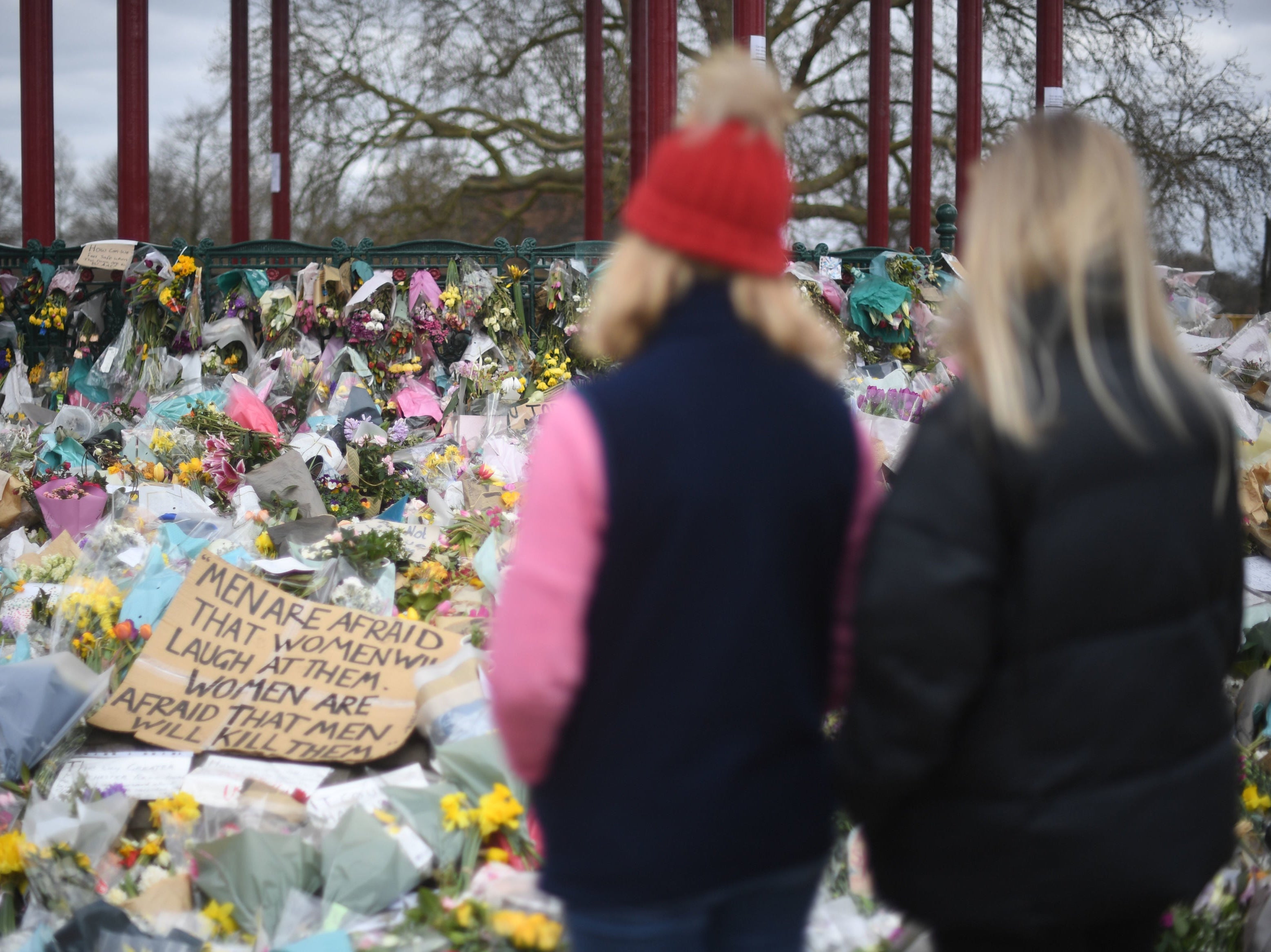41 women killed in cases where a male suspect has been charged since Sarah Everard case
Exclusive: Campaigners warn public has become ‘numb’ to male violence against women and girls

Forty-one women have been killed in cases where a male suspect has been charged since Sarah Everard’s killing.
Campaigners told The Independent the public has become “numb” to male violence against women and girls as they hit out the government for failing to implement proper measures to tackle the issue.
Everard, a 33-year-old marketing executive, went missing after leaving a friend’s flat in Clapham in South London at about 9pm on 3 March. Her body was later found in woodland in Kent and Wayne Couzens, a serving Metropolitan Police officer, was charged with her kidnap and murder.
Couzens pleaded guilty on Tuesday to the kidnapping and rape of Everard - with the 48-year-old also admitting responsibility for her killing but not yet entering a plea to the charge he murdered her.
The figure of 41 women killed since 9 March - the date Mr Couzens was arrested on suspicion of kidnapping Everard - originates from a project started by Karen Ingala Smith called Counting Dead Women.

Ms Ingala Smith told The Independent all of the women had been killed in the UK other than two British citizens who died abroad. One of these was Mayra Zulfiqar, a Londoner who was shot and strangled in Pakistan, and the other was Caroline Crouch, a 20-year-old woman living in Athens who was strangled and tortured.
“So many people thought the disappearance and killing of Sarah Everard was a watershed moment,” Ms Ingala Smith said. “Even at the time, I didn’t share that optimism. There is no evidence of any real will to tackle men’s violence against women from the government.”
Ms Everard’s case triggered an outpouring of anger as women shared their own personal stories about being sexually harassed, assaulted, or abused by men in public spaces, with many blaming the government and authorities for failing to take violence against women sufficiently seriously.
Ms Ingala Smith said the problem of male violence would not be solved unless the “not fit for purpose” criminal justice system is majorly reformed.
She added: “If a woman is older, black, and has a foreign-sounding name and she is killed by a man who has been treating her badly for 40 years, her murder is accepted as normal. It is seen as inevitable not newsworthy as long as we think like that it will continue to be normal and inevitable.”
Rosa, a charity which funds grassroots women's organisations, told The Independent over half a million pounds has been raised in Ms Everard’s memory and they are now deciding where the money will be donated.
Rebecca Gill, executive director of Rosa, said the majority of the £545,000 had been raised by Reclaim These Streets activists but noted the aim is to raise one million pounds in total.
She said it is “profoundly upsetting” male violence is often overlooked by both society and the government as she warned there is a lack of funding at a national and local government level for specialist organisations tackling such issues.
Ms Gill added: “This is particularly an issue for organisations led by and for black and minoritised women and girls. We are so used to male violence that it is not considered absolutely shocking.
“Behind the murders of women, there are millions of women in the UK suffering domestic abuse in their lifetimes, and most women in the UK will have a story about horrific street harassment she has endured from a man.
“This shouldn’t be an acceptable way of living. We have to keep that alarm bell ringing. At the same time, we have to support women who are experiencing these issues. I worry we are numb. Male violence is seen as so normal we have stopped noticing it. But it is devastating for those women.”
Ms Gill noted Rosa will be using the money raised in Ms Everard’s memory to fund specialist grassroots organisations “led by and for women and girls” which are “rooted in their communities” across the UK.
“The funding is life-changing for women because it reaches organisations women trust,” she added.
A woman is killed by a current or ex-partner every four days in England and Wales, while one in four women will suffer domestic abuse at some point during their lives.
Meanwhile, a recent survey by UN Women found 97 per cent of young women in the UK said they had been sexually harassed, while 80 per cent reported experiencing sexual harassment in public spaces. Researchers polled more than 1,000 women aged between 18 to 24 and found the sexual harassment included being groped, followed and coerced into sexual activity.
While campaigners have long warned rape has been effectively decriminalised in the country, with prosecutions and convictions for sexual assault and rape reaching record lows last year. Government data shows in the year to March 2020 that just 1.4 per cent of 55,130 rape cases recorded by police resulted in prosecution.
“Men who are violent don’t wake up one day and commit atrocious acts,” Ms Gill said. “They have been doing it for years and they are doing it in plain sight. These things are patterns of behaviour which are overlooked, ignored and blind-eyed for too long.”



Join our commenting forum
Join thought-provoking conversations, follow other Independent readers and see their replies
Comments